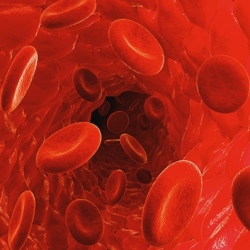
A team of Chinese scientists used CRISPR-Cas9 on humans for the second time in history, injecting a cancer patient with modified human genes in hopes of vanquishing the disease. In the US, the first planned trials to use CRISPR in people still have not gotten under way. But in China, things appear to be moving quickly.
Last autumn, a team at Sichuan University’s West China Hospital used CRISPR for the first time on an adult with lung cancer. In the new trial, reported by The Wall Street Journal, altered genes were injected into a patient with a rare type of head and neck cancer, called nasopharyngeal carcinoma, at Nanjing University’s Nanjing Drum Tower Hospital.
The aim is to use CRISPR, which allows scientists to snip out pieces of DNA with greater ease than older gene-editing techniques, to suppress the activity of a gene preventing the patient’s body from effectively fighting the disease. On Friday, the university announced that the first patient had received an infusion of altered cells, which are taken from their body and altered in a lab before being injected back in.
In all, 20 patients with gastric cancer, nasopharyngeal carcinoma and lymphoma are expected to participate in the trial. Its first phase is expected to conclude next year.
The other Chinese trial, in which scientists modified immune cells to attack lung cancer in 11 patients, expects to release results this year, according to the Journal.
The first US human CRISPR trial is slated to begin this summer at the University of Pennsylvania, after receiving a regulatory stamp of approval to proceed last year. In that trial, scientists plan to genetically alter patients’ immune cells to attack three different kinds of cancer.
